America has long held the reputation of “the world’s policeman,” stepping into trouble spots when asked (or not, depending). Certainly, this perspective became more ingrained in the American story with the country’s roles in World War I and World War II. But the U.S. hasn’t always taken the lead. It’s good to revisit those times when the U.S. needed an assist, and our global neighbors were happy to oblige.
1. France in the American Revolution
American politicians like to talk about the special relationship that we have with England. And yet, it’s an inescapable fact of history that the nascent nation fought a war (and then another) to be free of British rule. To that end, the earliest steadfast ally of the United States was actually France.
As you know from history class or Hamilton, France provided money, materials, experienced officers, and crucial naval support during the American Revolution. In 1778, France formally recognized the United States by signing the Treaty of Alliance. The French engaged the British fleet for two years before landing thousands of troops at Newport, Rhode Island in 1780. The French defeated the British on the sea at the Battle of the Chesapeake, and then the combined ground troops of the Americans and the French eventually engaged the British at Yorktown. The British surrender at Yorktown led to the end of the war, an outcome that would have been impossible without our early ally.
2. Spain in the American Revolution
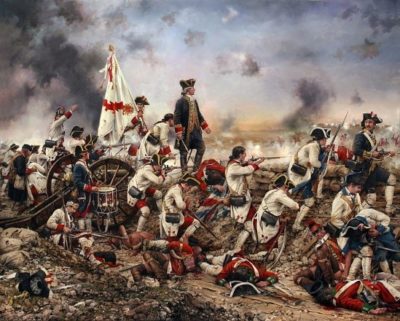
Even though French assistance was the critical factor, the aid of Spain during the Revolution cannot be overestimated. The country came to America’s aid through their previous alliances with France; Spain in particular was interested in delivering some payback to England over losses suffered years previously in the Seven Years’ War. France had granted Spain control of the Mississippi Valley since 1763, and it was from that region that Spain helped the colonists on land, from Louisiana to St. Louis. Spain also provided monetary support and participated in the Siege of Yorktown.
3. Great Britain in the Civil War
After the Revolution and the War of 1812, the United States spent many years building a strong diplomatic relationship with Great Britain. That work was repaid on a grand scale during the Civil War. Great Britain played a hugely important role in saving the Union. When they decided not to recognize the Confederacy as its own nation or to buy any cotton smuggled out of the South, it effectively crippled the South’s economy. It also denied the Confederacy legitimacy on the world stage, which meant it really wasn’t an independent nation. No other country recognized the South.”The subsequent economic advantage afforded the North and the lack of economic allies for the South went a long way toward establishing the road to victory for the Union.
4. The Canadian Caper Rescued American Diplomats from Iran
Tony and Jonna Mendez gave an interview about their experiences in 2012.
If you’ve seen Ben Affleck’s award-winning film Argo, then you’re familiar with this one. On November 4, 1979, Iranian militants stormed the U.S. Embassy and took dozens of hostages. One group of Americans that was working in a different building managed to escape and hide at various locations in Tehran with the aid of Canadian immigration officer John Sheardown, his wife Zena, and, eventually, Canadian ambassador Ken Taylor and his wife, Pat.
Taylor reached out to the highest levels of Canadian government, who in turn teamed with the CIA to create a plan to extract the Americans. CIA technical operations officer Tony Mendez worked with other American and Canadian personnel to concoct a scheme that would rescue the six by posing them as members of a Canadian film crew that had been in Iran to do work on a science-fiction film. Mendez and an associate using the alias “Julio” flew into Tehran, posing as Canadians; on January 27, 1980, Mendez, Julio, and the six Americans in disguise flew to Switzerland.
Elements of the story leaked to the press within days, although the complete operation would not be declassified until 1997. As a result of their efforts, the Taylors, the Sheardowns, and three of their associates were appointed to the Order of Canada, the second-highest award for a civilian in the country. The United States gave Ambassador Taylor the Congressional Gold Medal for his work.
5. The Deepwater Horizon Recovery Was a Team Effort (But It Could Have Been Bigger)
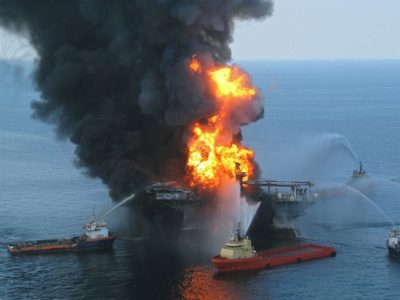
On April 20, 2010, when the BP Deepwater Horizon drilling rig exploded due to methane gas travelling from the well into the drilling riser. Eleven people were never recovered and declared dead. Two days later, the rig had sunk. For 87 days, oil poured into the Gulf of Mexico — the largest spill in the history of the petroleum industry. The effort to effectively seal the well would take four months to complete; in the interim, 5 million barrels (roughly 210 million gallons) escaped into the ocean.
Twenty-three countries offered assistance in the clean-up; the U.S. rejected all of them, partially out of adherence to the Jones Act, which places careful restrictions on how other countries interact with the U.S. in maritime situations. However, the U.S. would later relent and accept expertise and equipment from a number of countries, including Mexico, Canada, Norway, and the Netherlands. A number of countries ended up offering direct assistance to BP in the clean-up; while those countries weren’t directly working with America, they were certainly contributing to the effort to try to stem the environmental disaster.
Featured Image: The Surrender of Lord Cornwallis by John Trumbull shows the British surrender to American and French forces after Yorktown. (Wikimedia Commons via Public Domain)
Become a Saturday Evening Post member and enjoy unlimited access. Subscribe now
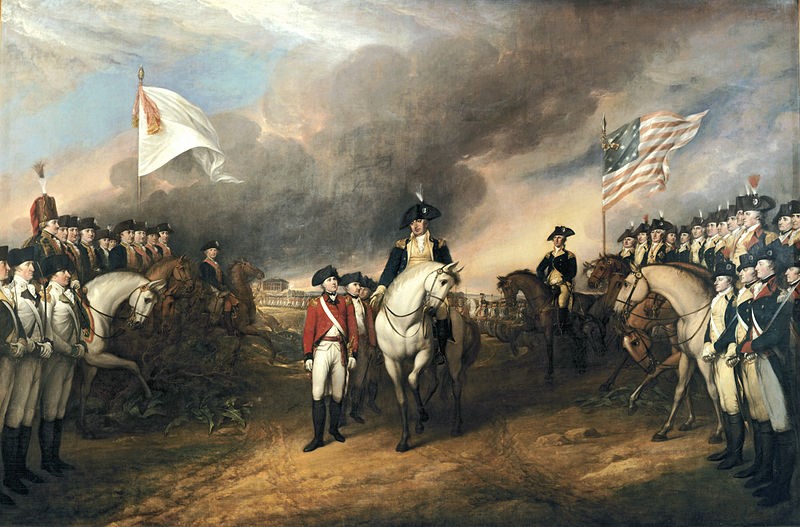
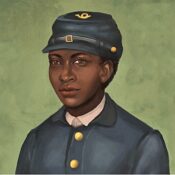
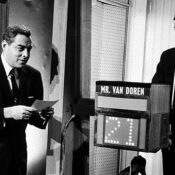
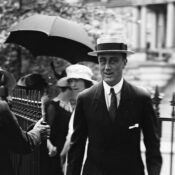
Comments
Great Britain was officially neutral in the Civil War. But the elites, government officials and aristocracy supported the CSA. However they genuinely abided by the naval blockades. You also left out the ‘Trent Affair’ where 2 CSA diplomats were seized by a Union ship that boarded the HMS Trent. It was so serious that there was talk of entering the war. Thousands of British troops were sent to Canada. It was a last minute diplomatic effort by Lincoln that kept the British out of the war. But there were privateers and arms dealers that ran the blockades and supplied the CSA with arms and ammunition. Britain finally declared both the North and South as belligerant states and supplied both, which greatly increased the revenue for British companies in the selling of everything a war needs.
Saved America? Not intentionally.